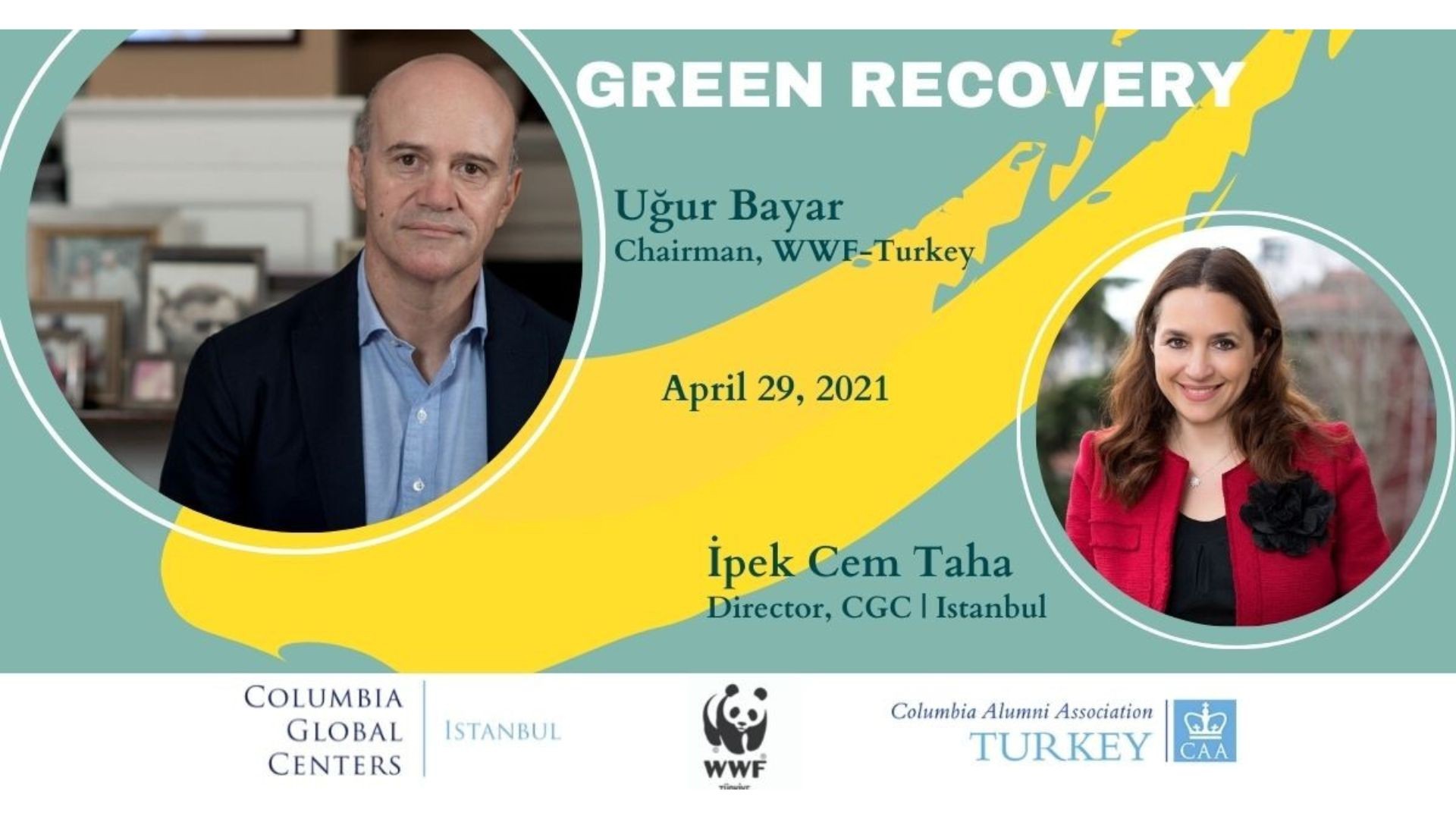Green Recovery
In celebration of Earth Day, the Istanbul Center, in collaboration with the WWF Turkey and the Columbia Alumni Association of Turkey, organized a webinar, titled "Green Recovery," with Uğur Bayar, Chairman of WWF Turkey, in conversation with Ipek Cem Taha, Director of Columbia Global Centers | Istanbul, on April 29, 2021. The webinar focused on the post-pandemic green recovery, sustainable energy, green investing opportunities, and agricultural potential in Turkey.
In this conversation, Uğur Bayar envisioned a holistic understanding of acting towards green recovery. He argued that the participation of different stakeholders, including but not limited to governments, companies, civil society organizations, international organizations, individuals, and different sectors should transform the energy and production systems that have been in practice since the Industrial Revolution.
Some highlights include the following:
Evaluating the improvement of Turkey in adapting to this transformation, Bayar talked about both the current level of public awareness and the governmental support in Turkey. According to a recent survey, 72% of the population in Turkey believes that human activities have caused climate change and that people are worried about it, which shows the increasing awareness on the societal level. That has brought us a growing demand for more environmentally friendly brands, forcing companies to act green and sustainable.
Second, Bayar mentioned the urge uttered by the Ministry of Environment and Urbanization of the Republic of Turkey to make a robust climate law while reminding that Turkey had not ratified the Paris Climate Agreement. As opposed to the desire for transformation at the governmental level, the continuum in coal incentives stands out as one of the stumbling blocks in realizing these actions, Bayar stressed. He also touched upon the tremendous ecological cost, thereof human cost, of mining in the Kaz Mountains in Balıkesir and of generating the Kanal Istanbul project. Bayar stated that economical improvement without considering ecology and human health is not possible. Therefore, he called for consideration of building smart electric networks and hydrogen-boron fusion reactors; producing efficient energy storage and smart cars; and preserving nature to provide a sustainable future to new generations. He also underscored that Turkey would not be able to neglect the reality of global consensus on the need for climate action and would pay a high price unless it ratifies the Agreement soon, especially considering the acceleration of the international integration of industries over the ecological regulations.
When asked about agricultural productivity in Turkey, Bayar shared some data on the misuse of water resources in the country as 73% of the resources are utilized in agriculture, 16% of it is in households, and 11% of it is in industries. For the efficient utilization of land and water, he argued, agri-tech should be sought and sees it as one of the most crucial entrepreneurial fields of the future.
Lastly, he also underlined the significance of individual effort that can be made to support this transformation and said that the pandemic has disclosed to us our potential to change our consumption habits by consuming less to maintain daily life.
To hear the full conversation (in Turkish), click here.
